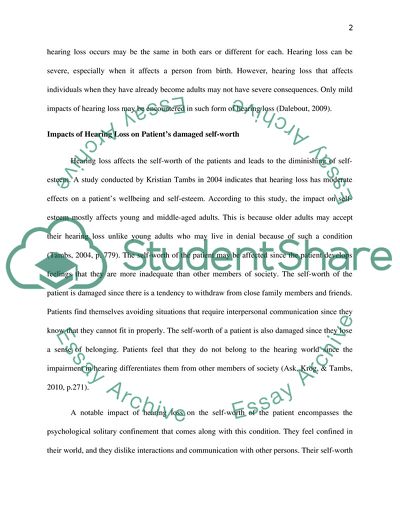Cite this document
(“The Psychosocial Effects of Hearing Loss in Adults Essay”, n.d.)
The Psychosocial Effects of Hearing Loss in Adults Essay. Retrieved from https://studentshare.org/psychology/1618420-the-pyschosocial-effects-of-hering-loss-in-adults
The Psychosocial Effects of Hearing Loss in Adults Essay. Retrieved from https://studentshare.org/psychology/1618420-the-pyschosocial-effects-of-hering-loss-in-adults
(The Psychosocial Effects of Hearing Loss in Adults Essay)
The Psychosocial Effects of Hearing Loss in Adults Essay. https://studentshare.org/psychology/1618420-the-pyschosocial-effects-of-hering-loss-in-adults.
The Psychosocial Effects of Hearing Loss in Adults Essay. https://studentshare.org/psychology/1618420-the-pyschosocial-effects-of-hering-loss-in-adults.
“The Psychosocial Effects of Hearing Loss in Adults Essay”, n.d. https://studentshare.org/psychology/1618420-the-pyschosocial-effects-of-hering-loss-in-adults.


